When you play the Game of Thrones, you win or you die.
Yes, Cersei. We know.
In the season seven finale of Game of Thrones, “The Dragon and the Wolf,” Cersei Lannister opted to take actions benefiting herself by not engaging with a game carrying more serious stakes and more serious risks. In “The Long Night,” the North, featuring a coalition of House Stark and House Targaryen forces, squared off without Lannister support against a nightmare horde of wights to achieve a Pyrrhic victory (look it up).
Cersei: Fools.
Although the North won and ended the existential threat that promised doom to the entire continent, the Lannister queen is now positioned strongly for the endgame, with her remaining Lannister regular forces supplemented by Euron’s Iron Fleet and the 20,000 strong sellsword army, the Golden Company. But no elephants.
Cersei: I wanted those elephants.
Having the political momentum shift back towards Cersei is not an atypical event. It happened at the end of season six when Cersei’s enemies in the Faith Militant (among others) were destroyed by her fortuitous employment of wildfire, and her alliance with the King of the Iron Islands and his Iron Fleet kept Daenerys Targaryen from being able to stampede over Cersei when the Targaryen arrived in force the following season.
But Queen Cersei shouldn’t get too cocky or be too comfortable about the North’s diminished troop strength and relative weakness in regards to her position on the virtual cyvasse playing board.
Because things might not work out as she expects.
THE LONE WOLF DIES BUT THE PACK SURVIVES
There are many unknowns in regards to how many troops survived the battle of Winterfell – starting with how much of the fighting forces of the North were physically at the castle’s location when the Long Night battle was fought. Only the northernmost houses – Mormont, Umber, Karstark, and Glover – were accounted for during the conlict. Mormonts, Karstarks, and Umbers fought in the battle (with the Umbers fighting for the other side) and the Glovers of Deepwood Motte were absent – having sent a note asserting they had a scheduling conflict and maybe they could make it next time.
The other named houses – Cerwyn, Hornwood, and Manderly – didn’t seem to be present. In the season premiere, Sansa said that, as soon as they’d heard about the Wall, she “called all [their] banners to retreat to Winterfell,” but it’d make sense to prioritize the populations most at risk, those nearest the Wall, which is exactly what we saw then with the Umbers and Karstarks (uh, with a 50% success rate.)
Therefore the North might still have some fighting resources south of Winterfell to leverage if hostilities against the south will proceed. In theory, this could include the Glovers, who may be the target of some scorn by the survivors of the battle. Lord Robett would have to work hard to redeem his reputation.
Walder Frey: Get used to being called the “late” Robett Glover.
Robett Glover: Aren’t you dead?
Walder Frey: Maybe Arya Stark killed my twin brother, Argus. Plot twist!
Alas, it doesn’t appear like Tim McInnerny is back to play the part of Robett this season.
But even if the northmen can cobble together something like an army, the forces that Daenerys brought with her from Essos did not fare well during the battle.
The Dothraki were essentially eliminated during the initial rush against the wights. Were they destroyed to a man? No. We saw a small number running back on foot to Winterfell with Ser Jorah, and likely even more survived. But there’s no mighty horde anymore.
A bigger question would be how many Unsullied survived.
When the battle began in earnest, most of the Unsullied were arrayed just beyond the yet-to-be-lit fire trench. Their phalanxes covered the retreat of the less disciplined, non-professional northern forces. By the time the trenches were ablaze, the Unsullied had been overrun and wights had massed up along the flaming perimeter.
The Unsullied are hardy. Some may have been able to retreat. Others might have formed up small porcupine-like squares and just dug in, but that doesn’t seem right, with Daenerys ending up outside the trench and on foot, with only Ser Jorah to defend her; the Unsullied would not have sat out their queen being in danger. So, speculation on any but a handful of Unsullied surviving the battle should be approached with skepticism.
With the loss of her personal forces, elite light cavalry and infantry, Daenerys took the brunt of the losses. Losses which extended beyond her military personnel.
Daenerys had already lost Viserion to the Night King. Then, her trusted advisor and queensguard Ser Jorah Mormont perished protecting her. And, with the revelation that her lover Jon Snow is also a Targaryen, her claim to the Iron Throne is in the air. The fact that Jon is, as Daenerys stated, “the last male heir”, is only somewhat relevant. Though Westerosi society had favored males over females with stronger claims in times past, Jon has a stronger claim without it being a gendered issue: as Rhaegar Targaryen’s son, Jon comes before Rhaegar’s younger siblings in a traditional line of succession.
Dany now finds herself unlikely to have the military forces to challenge Cersei’s Golden Company. Her dragons are tremendous weapons of mass destruction, but they’re not invulnerable. And as the Targaryens discovered in trying and failing to pacify Dorne – to control a region requires humans and not just the threat of dragons.
To make her move, Dany’s going to need the support of the war-weary North.
Ser Davos Seaworth: The northmen are loyal to Jon Snow. Not to her. They don’t know her. The Free Folk don’t know her. I’ve been up here awhile and I’m telling ya, they’re as stubborn as goats. If you want their loyalty, you have to earn it.
The day before the battle, Sansa Stark asked Daenerys what would happen after the Army of the Dead were defeated. Dany was focused on retaking the Iron Throne, but Sansa’s position was focused on maintaining northern independence. Unfortunately, these negotiations went unresolved as Theon Greyjoy’s arrival interrupted the two leaders, and the opportunity for the resumption of diplomacy never returned.
Now the question of northern independence seems rather straightforward. Without her personal forces, Dany will have to be more open to compromise: it’s better to give up something to gain something rather than refuse to compromise and end up with nothing. She might not even have to compromise much, since Dany must have earned some respect from the northerners by literally putting her forces on the line for them.
Seeking compromise would set Daenerys apart from Cersei Lannister, who is playing a winner-take-all zero sum game.
GAME THEORY OF THRONES
Last season, Cersei was offered a truce largely so Daenerys could comfortably withdraw from her southern campaign to address the problem of one hundred thousand wights (at least one hundred thousand) bent on death and destruction.
At the time, Cersei went beyond accepting a truce; she agreed to send troops to support the effort. She only asked that she should be remembered for offering to help without expecting any promises or assurances of goodwill afterwards.
As Ser Jaime reported to the Winterfell court after defecting from Cersei’s service and volunteering as a one-man Brienne-knighting army, the Lannister host was not coming north. Queen Cersei was going to retake any regions that had sworn themselves to Daenerys, and she had reinforced control of the kingdoms with sellswords.
When it came to the supernatural threat rolling down from the lands beyond the Wall, Cersei was less interested in the responsibility to protect and serve the public, but rather the opportunity it provided her. This is somewhat of an echo to season two, when Tyrion remarked that it was good fortune for the Lannisters that the two enemy Baratheons seemed to hate each other more than their mutual foes in King’s Landing.
Cersei’s rationale to her field marshall Ser Jaime stated that whomever won in the north, her Golden Company would be able to deal with.
Daenerys could have made a similar decision.
Jon: We northmen won’t bow to you, but it would be awesome if you could come to the North with your dragons and guys, and help fight a zillion zombies.
Dany: Tempting. But I’m busy now. And that seems an awful long way to travel. How about I stay in the south and crush Cersei, whose army is sadly lacking in sellswords and elephants, and you plucky lads take the first crack at the walking dead? If you lose, the zombies will come south to me and my dragons anyway. They can make that exhausting trip. And the climate will be warmer as well.
But Dany didn’t make that decision.
Cersei seems to have fans observing the show and pointing out how smart she is for opting out of the war against the dead.
Her decision to stay out of the northern conflict does have a certain amount of rational thought to it. Dany and Cersei both weighing their options to participate or not brings to mind Game Theory economics and the Prisoner’s Dilemma.
(I am not an economist, so I promise not to make this a long, detailed section.)
Simply put, imagine two prisoners in separate cells. The police have some evidence against each one for a lesser charge, and suspect without evidence that each of the prisoners is guilty of some more-serious crime. Each prisoner can independently take one of two actions: either stay silent and do not cooperate with the police; or cooperate with the police and inform on the other prisoner, in exchange for leniency.
If both stay silent, both spend some time in jail since the police have evidence of lesser charges and there is no leniency. If both inform on the other, each gets jail time for the serious charge, but it is reduced because of the cooperation. If only one cooperates and the other remains silent, the informant goes free and the uncooperative gets jail time for the serious charge and no leniency.
If we consider the prisoner’s dilemma exercise in Game of Thrones terms, both Dany and Cersei can commit forces to the North or not. With Daenerys committing forces and Cersei not doing so, she enjoys something like the benefit of the prisoner who informs on the other prisoner, the silent prisoner. She receives no downside in the scenario and Daenerys takes the full penalty.
In the prisoner’s dilemma, if one prisoner knew that the other would remain silent (as Cersei knew that Dany was going to go North to fight wights) the rational decision is to take no losses and maximize a win.
Which is why Cersei is considered the winner in this scenario.
Except that the situation in Westeros is not analogous to the prisoner’s dilemma, with its clean actions and consequences. The consequences of neither Dany nor Cersei assisting the North is the high likelihood that Winterfell falls and Bran is killed by the Night King, with Arya unable to make her move because she was overwhelmed with wights before she could be inspired by Melisandre to try for the Night King.
Someone needed to assist the North. And had Dany and Jon’s forces failed in their attempt to slow the Night King down so Arya could kill him, it wouldn’t be just the Army of the Dead heading south to overrun the elephantless Golden Company: they’d be joined by the Army of the Northern Dead. Wight Lyanna Mormont would be formidable.
Cersei: Fine. But it worked out. More wine. Strickland, you’re sure you didn’t bring some elephants? Disappointing. You can redeem yourself by bringing me the Targaryen girl’s head along with Ned Stark’s bastard’s when they come knocking.
But it’s one thing to occupy a strong position; it’s another thing to maintain it.
DIVIDED LOYALTIES
When Sansa and Tyrion were waiting out the battle down in the assumedly safe crypts, Sansa considered that her marriage to Tyrion would not have worked out in the current situation, based on his divided loyalties between her, the Lady of Winterfell, and Daenerys, the Dragon Queen. Tyrion might be concealing divided loyalties, not necessarily between Dany and Sansa, but in regards to Dany and Cersei, or at least the concept of his Lannister family embodied in Cersei and her unborn child.
We didn’t witness the full extent of his meeting with Cersei. Tyrion may have made a secret deal or merely taken pity on his pregnant sister and fallen for her lies; so he’s “either a traitor or a fool,” as Daenerys put it. His divided loyalties should complicate the northern coalition’s operations when it comes to dealing with toppling his sister.
But there’s a more obvious player to consider with divided loyalties. Euron Greyjoy.
Although it’s unfair to say that he has divided loyalties at all. He’s loyal only to himself.
Euron is currently providing Cersei with her military supremacy: his fleet and the Golden Company he ferried to Cersei from Westeros. The Golden Company famously does not break their contracts, but did Cersei check out the fine print on the Golden Company contract when the negotiations were finalized by Euron in Essos picking up the sellswords? Are the Golden Company in Cersei’s employ? Or the Greyjoy king’s?
Euron told Cersei that his life’s dream is to marry a beautiful queen. Cersei assumed he meant her, but there’s another queen on the scene, younger and arguably more beautful.
Maggie the Frog: This sounds familiar… I’m calling my lawyer!
With Daenerys armyless and dealing with northern allies who may be tired of fighting, if Euron would offer Dany the Golden Company and the Iron Throne as a wedding gift, she’d have to make a decision on how badly she wanted that uncomfortable chair.
WHAT IS THIS SHOW ABOUT ANYWAY
With the defeat of the Night King, there was some backlash about how the show had changed: it had once been a political drama with some light magic, then with Hardhome it had unexpectedly (to some) turned into a zombie horror show; and now it had reversed course to become a political drama again, with Cersei as its “big bad.”
But the show hasn’t changed. The priorities in dealing with the issues have.
In the very first episode of Game of Thrones, these elements stood out:
- Undead monsters north of the Wall.
- Exiled royals dreaming of reclaiming their rightful seat of power.
- The mystery of Ned Stark’s murdered mentor.
- A northern lord entering into dangerous politics.
- Conflict between two nobles houses, as an incestuous knight defenestrates a child.
Although all of those elements might not be equally important, they all were important.
Jon Arryn’s death was avenged last season and the undead threat has been neutralized in the first half of this season, but the political storylines remain: Daenerys has returned to Westeros with an army to pursue her dream of wearing a crown; Jon Snow is a northern lord with a destiny that could be in opposition to Daenerys’s dream; and, although Jaime Lannister has received some kind of an absolution from the Starks, his sister has not.
The show has been about more things than politics, but those elements have been dealt with. Just as Arya didn’t stop when she killed the first person on her list, the show isn’t going to stop resolving its issues. It’s time to move on the final items on the show’s list.
The threat of the White Walkers was not a distraction, it was a Life-threatening complication that had to be addressed. It represented Winter in a very literal sense, but also in the sense laid out in Ned Stark’s talk with Arya all the way back in season one:
You were born in the long summer; you’ve never known anything else. But now winter is truly coming. And in the winter, we must protect ourselves, look after one another. —Ned Stark to Arya in Season 1 Episode 3, “Lord Snow”
The squabbles represented by anyone’s desire for the Throne have a time and a place, but not during Winter. It was correct for Dany to set her desire aside so the Army of the Dead could be defeated. And wrong for Cersei not to set aside her squabbling.
But Winter fell at Winterfell. And now there is a time for squabbles. And wolves.
For Cersei Lannister, Summer is coming.
The post What Comes After the Long Night: We’re in the Endgame now. And Summer is Coming. appeared first on Watchers on the Wall.
Via http://watchersonthewall.com
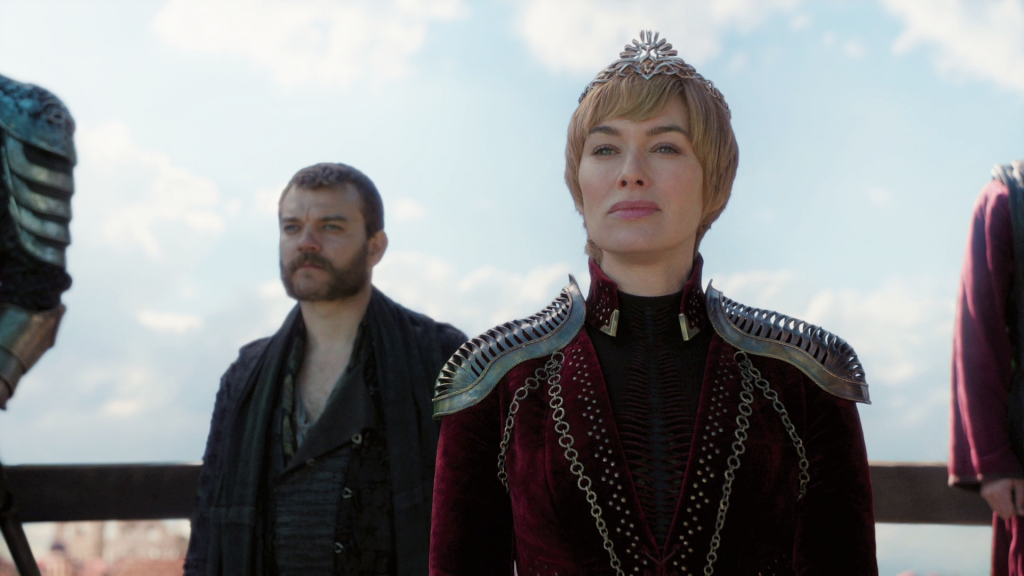
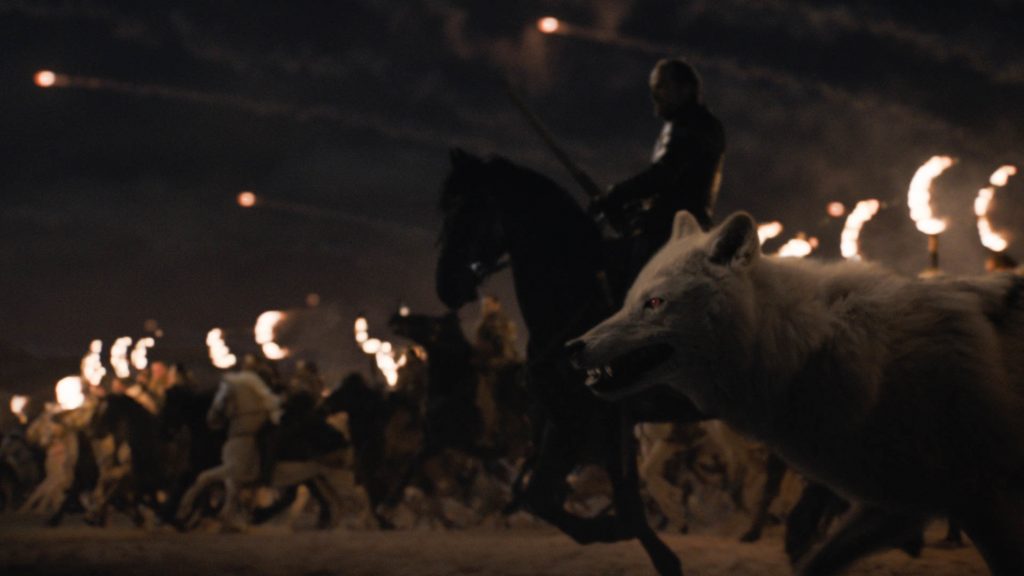
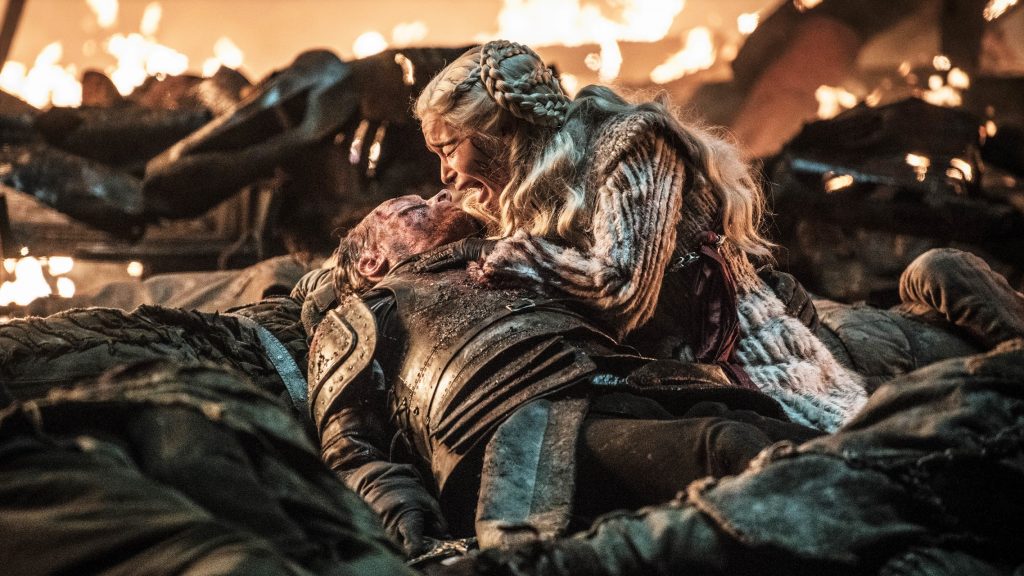
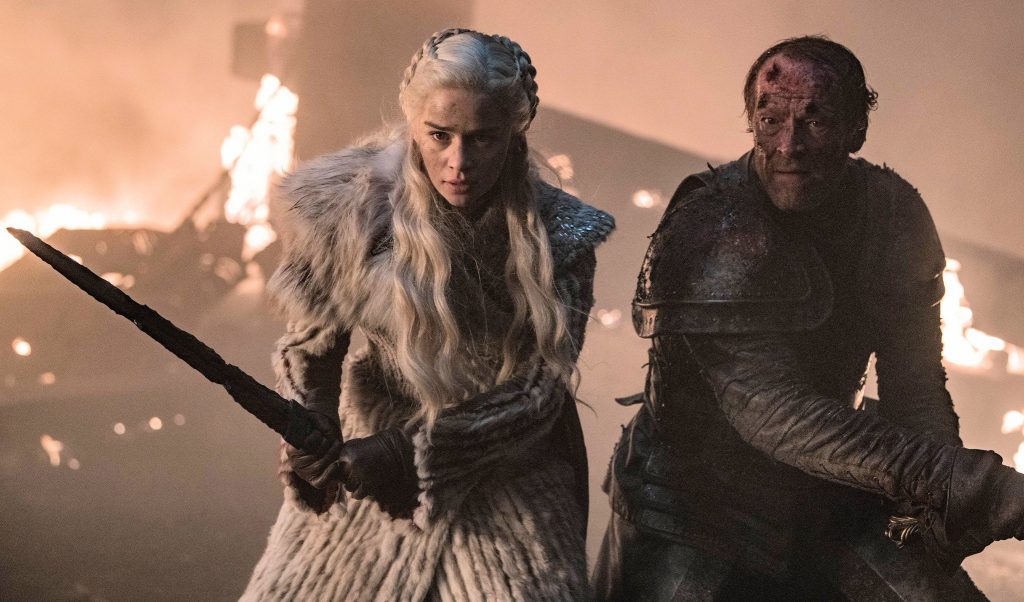
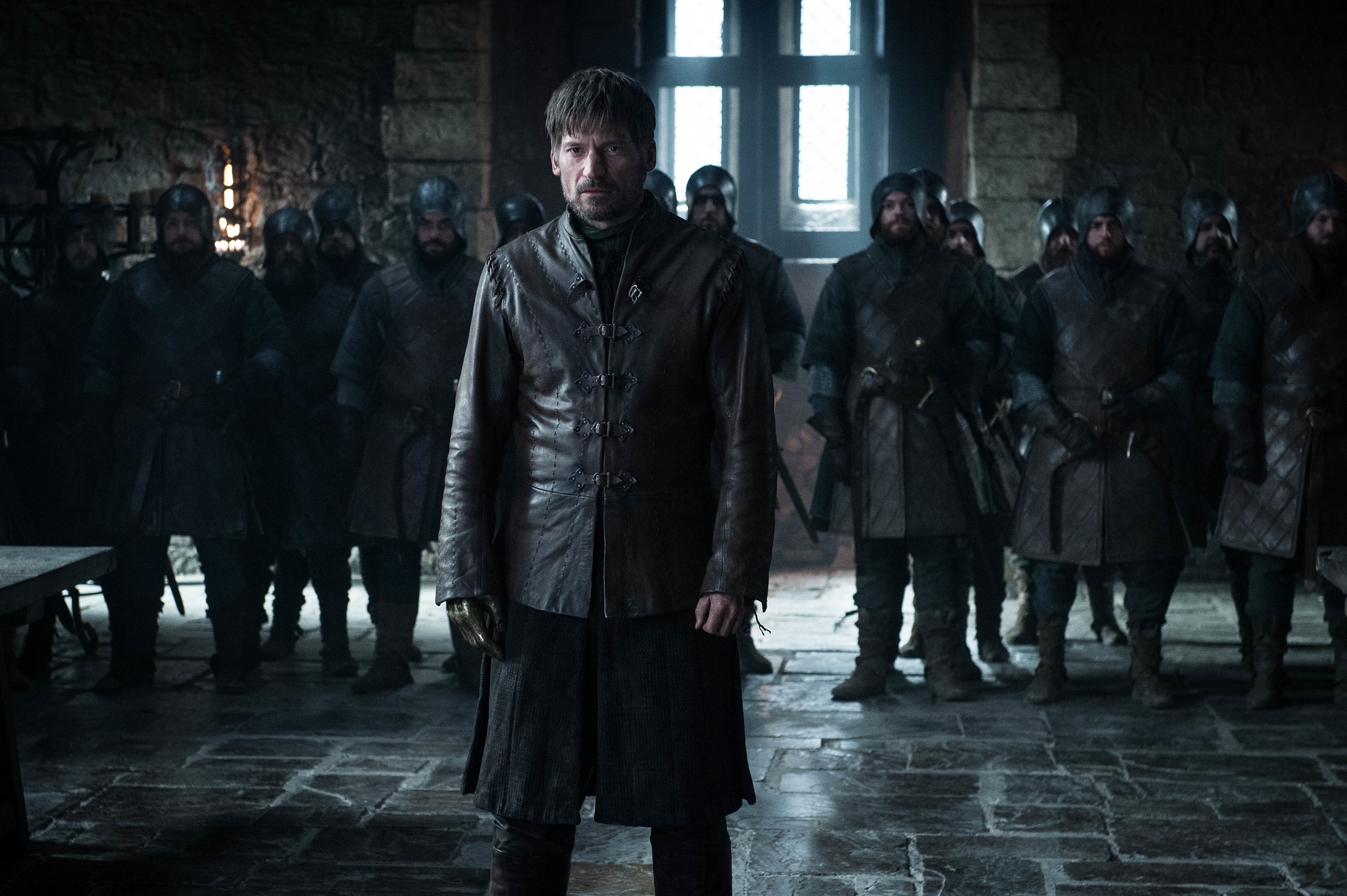
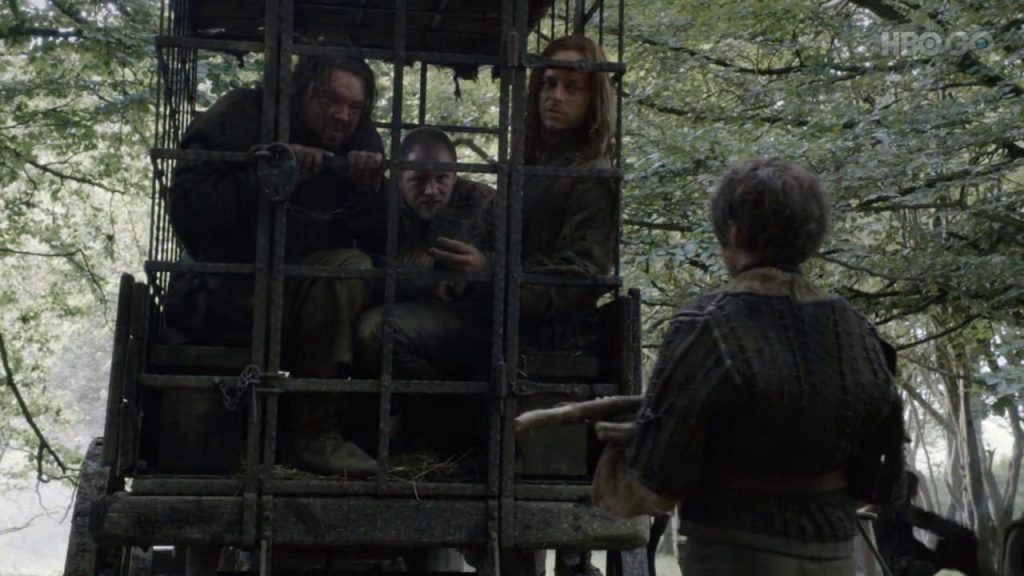
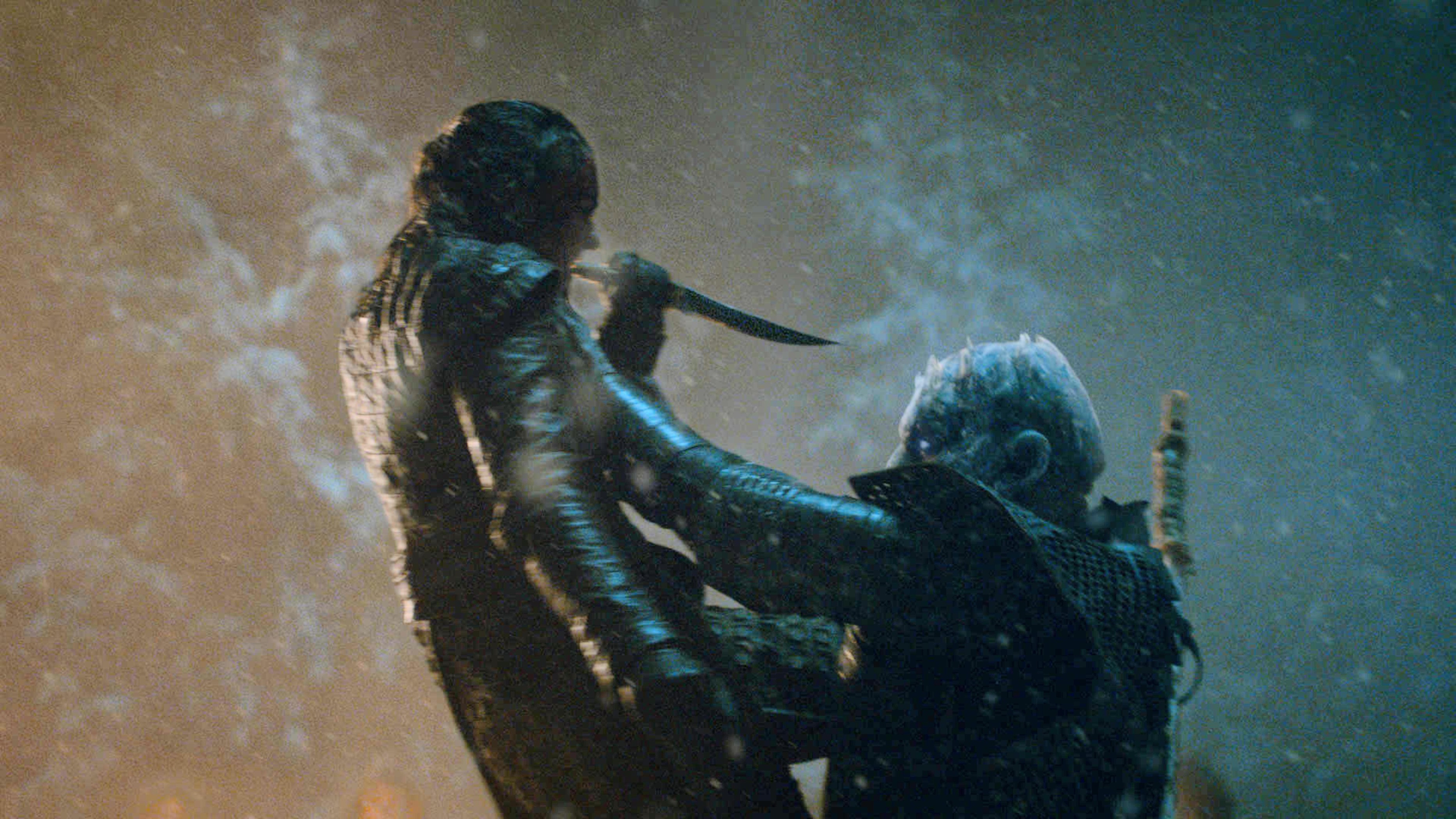
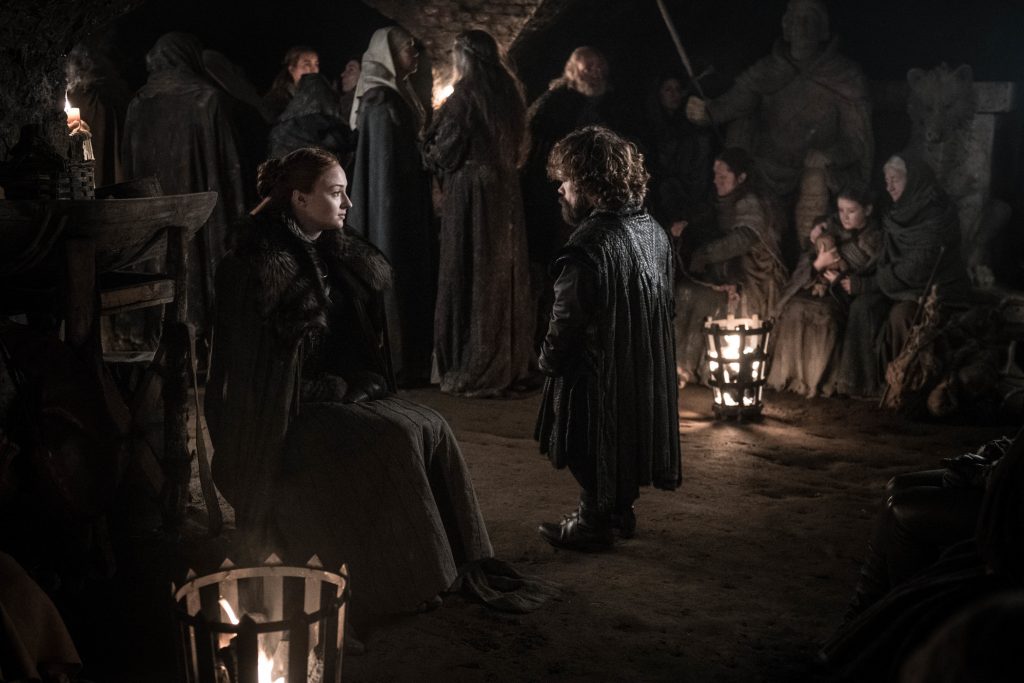
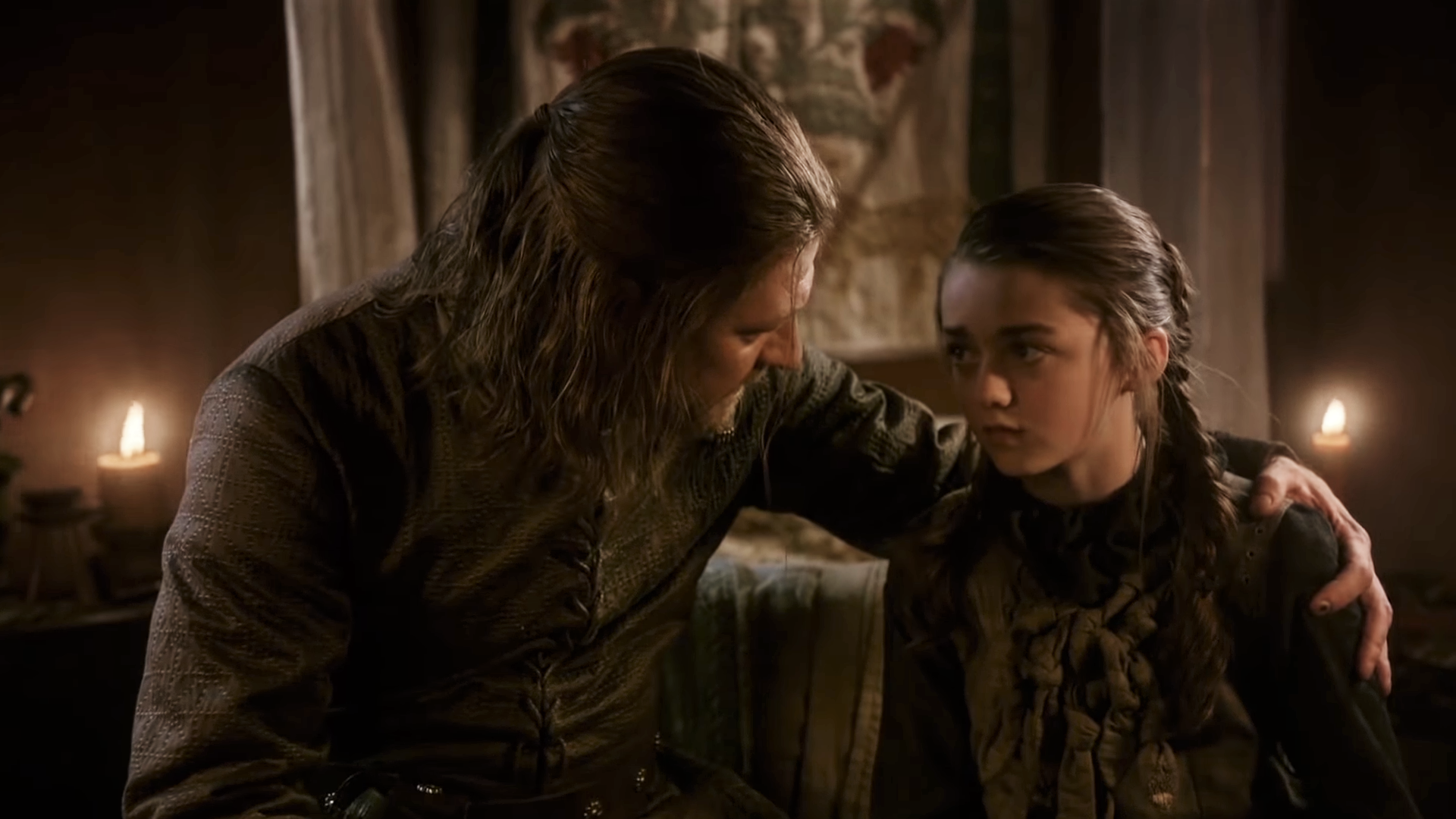
No comments:
Post a Comment